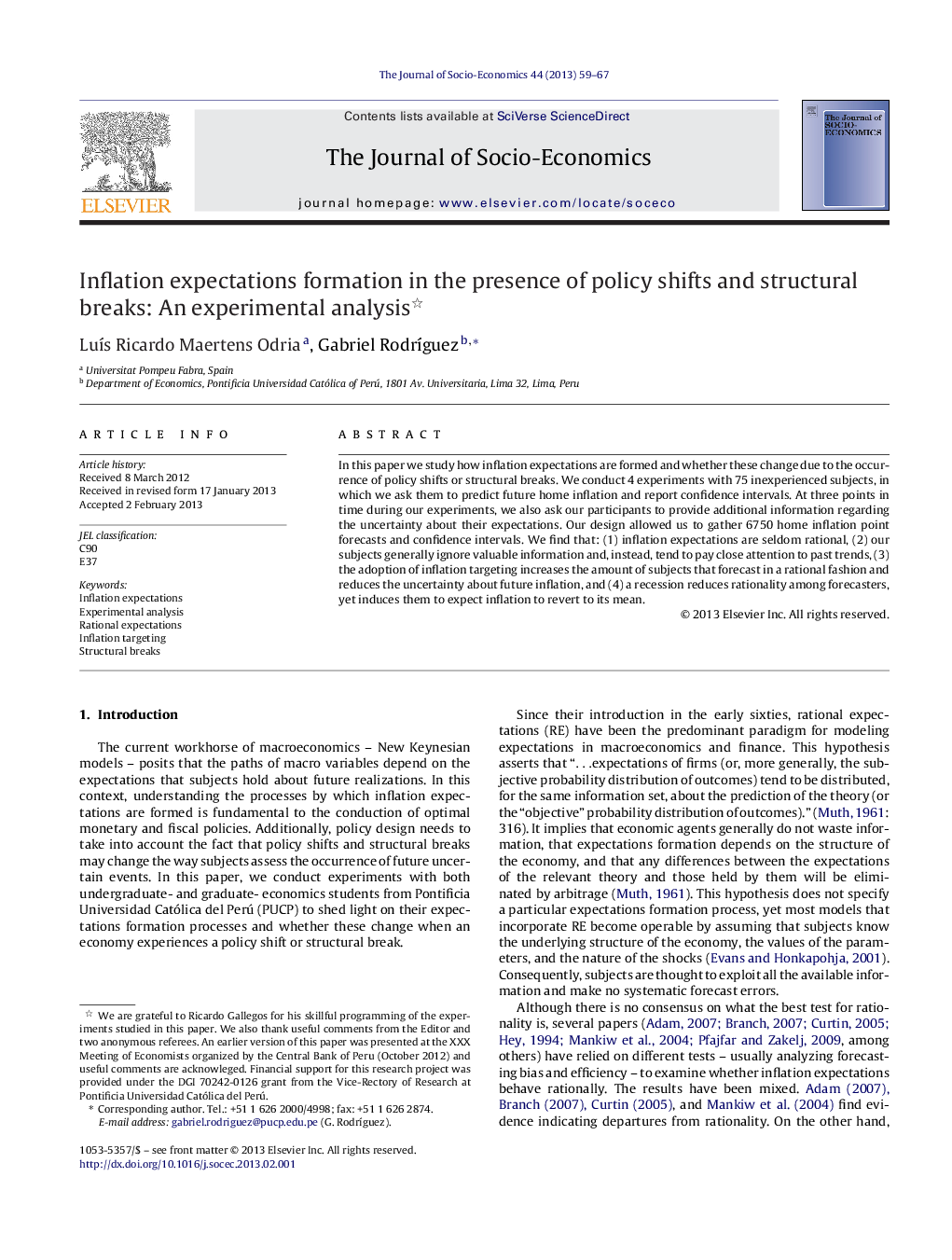| Article ID | Journal | Published Year | Pages | File Type |
|---|---|---|---|---|
| 970644 | The Journal of Socio-Economics | 2013 | 9 Pages |
In this paper we study how inflation expectations are formed and whether these change due to the occurrence of policy shifts or structural breaks. We conduct 4 experiments with 75 inexperienced subjects, in which we ask them to predict future home inflation and report confidence intervals. At three points in time during our experiments, we also ask our participants to provide additional information regarding the uncertainty about their expectations. Our design allowed us to gather 6750 home inflation point forecasts and confidence intervals. We find that: (1) inflation expectations are seldom rational, (2) our subjects generally ignore valuable information and, instead, tend to pay close attention to past trends, (3) the adoption of inflation targeting increases the amount of subjects that forecast in a rational fashion and reduces the uncertainty about future inflation, and (4) a recession reduces rationality among forecasters, yet induces them to expect inflation to revert to its mean.
► We study how in.ation expectations are formed and their relationship with policy shifts or structural breaks. ► We conduct 4 experiments with 75 inexperienced subjects asking them to predict future home in.ation and report con.dence intervals. ► We find that in.ation expectations are seldom rational; subjects ignore valuable information and pay close attention to past trends. ► Adoption of in.ation targeting increases the amount of subjects forecasting in a rational fashion reducing uncertainty. ► We show that a recession reduces rationality, and induces to expect inflation to revert to its mean.
